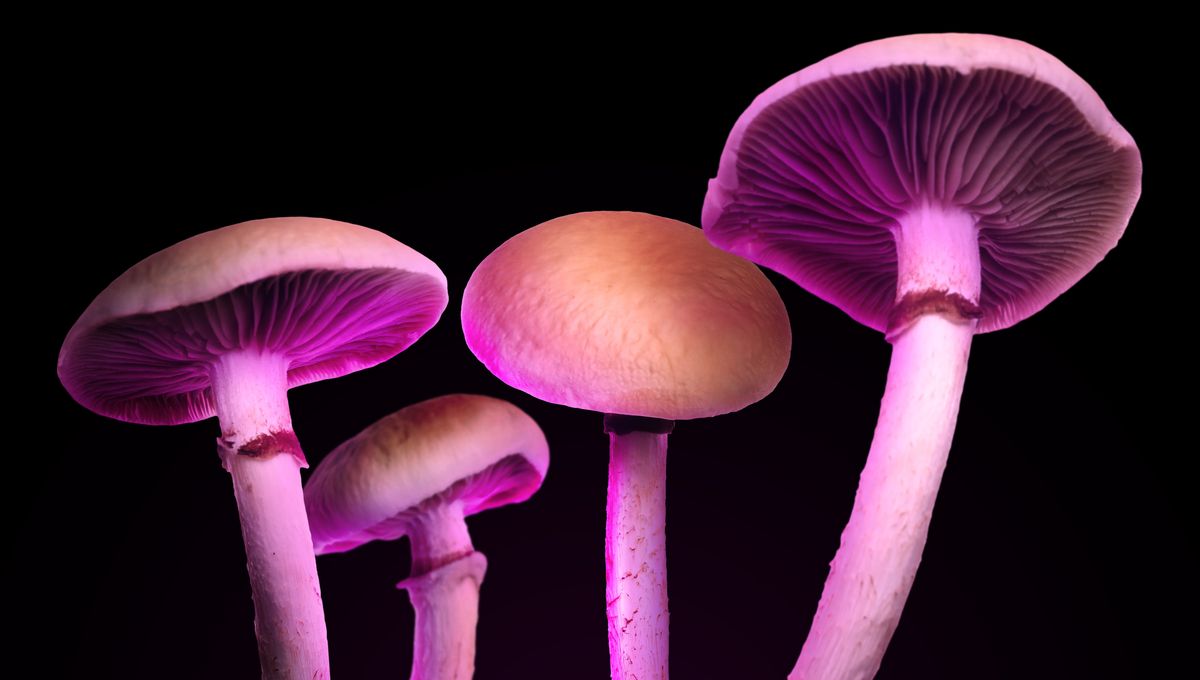
Magic mushrooms have been extensively studied for their potential mental health benefits, yet new research suggests that the psychoactive compound in these trippy fungi may also have powerful anti-aging properties. Using cultured human cells and live mice, the study authors showed that psilocybin appears to significantly slow down cellular aging while also keeping older rodents alive for longer.
Inspiration for this research came from the “psilocybin-telomere hypothesis”, which posits that the psychological effects of psilocybin may help to protect cellular DNA by preserving the integrity of telomeres. These are protective sequences of DNA that bookend each chromosome, but which degrade and shorten as we age.
The link between mental health and telomere length is well documented, with depression and other psychological conditions being associated with accelerated shortening of these protective caps. Because psilocybin has been shown to help treat mental health disorders, the authors of the new study wondered whether it might also have an impact on telomere length and cellular aging.
To investigate, they treated human fetal lung cells with psilocin, which is the active metabolite formed when psilocybin is digested in the gut. The results showed that cellular lifespan increased by an average of 29 percent when ten micrograms of the drug were administered, and by 57 percent when the dosage was upped to 100 micrograms.
Repeating the experiment using adult human skin cells, the researchers noted a 51 percent extension in cellular lifespan following treatment with 100 micrograms of psilocin. “Overall, these results suggest that the in vitro impacts of psilocin are dose-dependent, with higher dosing ultimately leading to greater cellular life extension,” they write.
Looking at the mechanisms behind this anti-aging effect, the study authors found that telomere shortening was notably reduced in treated cells compared to non-treated controls. The addition of psilocin also led to elevated levels of a protein called SIRT1, which plays a major role in regulating cellular aging and metabolism. At the same time, psilocin attenuated the release of a compound called Growth Arrest and DNA Damage-inducible 45 alpha (GADD45a), resulting in less degeneration of cellular DNA.
Taking things a step further, the researchers treated 19-month-old female mice – equivalent to 60 to 65 years of age in human terms – with psilocybin once a month for ten months. Overall, 80 percent of these mice survived until the end of the course, compared to just 50 percent of age-matched mice that didn’t receive treatment.
In addition to remaining alive for longer, mice that received psilocybin also looked younger than control mice, exhibiting “improvements in overall fur quality” and less graying. “In summary, we provide the first experimental evidence demonstrating that psilocybin treatment can enhance survival in aged mice,” write the study authors.
“This is a very exciting and clinically relevant finding that suggests that even when intervention is initiated late in life, it can have dramatic impacts,” said study author Dr Kosuke Kato in a statement. Encouraged by their results, the researchers now call for further studies investigating the potential of psilocybin to aid in the treatment of various age-related diseases, including cancer.
At the same time, however, Kato urges caution, stating that “there is still a lot to understand, including optimal dosing protocols that will lead to maximal efficacy. We also need to better understand the potential risks of long-term psilocybin treatment before this type of treatment is ready for public use.”
The study is published in the journal npj Aging.
Source Link: Psilocybin Shows Potential In Slowing Human Cell Aging And Increasing Lifespan In Mice